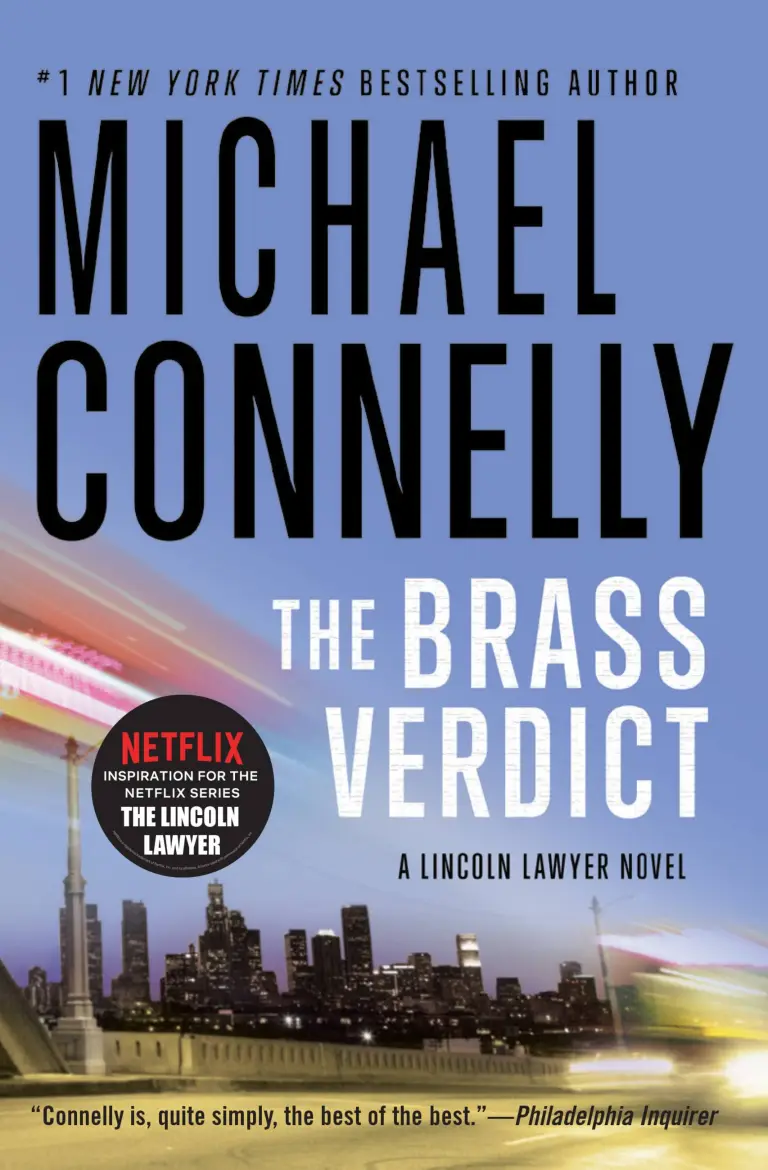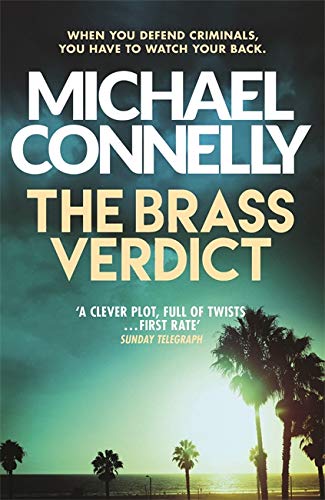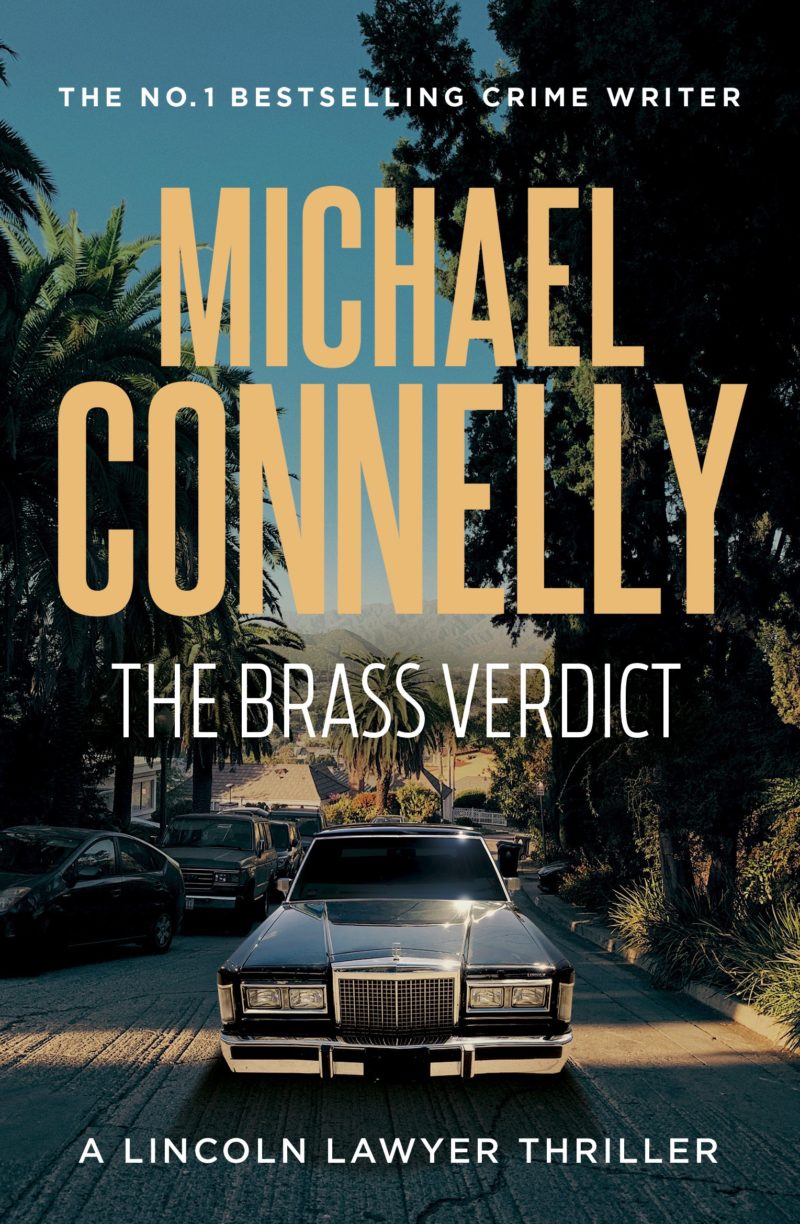The Brass Verdict Q & A
Question: What’s this new book all about?
Michael Connelly: It’s got a lot of things going on in it. I kind of look at it as having two major “through lines,” or A tracks, and then several lesser-story strings running through it and binding it all together. The first main track is the murder of Jerry Vincent, which is the inciting action of the story. Vincent is a defense attorney. His murder brings Mickey Haller off the shelf, where he’s been on a bit of a sabbatical, you could say. Mickey is ordered by a judge to take over Vincent’s entire law practice. Mickey immediately runs into Harry Bosch, who is investigating Vincent’s murder. So the first A track centers on the question of who killed Jerry Vincent and why. The second A track centers on one of the cases Mickey inherits: the murder trial of Walter Elliot. It’s a big case with a lot of media attention — and it’s paying Mickey the biggest fee of his career. In many ways it’s a huge test case for Mickey as well. He’s a bit rusty, having not been in court for a year.
Question: And the so-called lesser tracks? Care to share any of these?
Michael Connelly: Well, the relationship between Haller and Bosch is a big one of these. They’re flip sides of the same coin, given that one works for the defense and the other for the prosecution. But they have to forge a sort of unholy alliance, a partnership of some sort, in order to figure out who killed Vincent and who is behind a threat to Haller. There are other strings as well. The book has a lot in it about recovery and redemption, about fatherhood, about the back doors of the justice system. This last thing is something I call the “stuff.” By this I mean the hard-to-put-your-finger-on stuff that makes the world of a book seem real. I have tried to fill this book with the anecdotes and shortcuts and maneuvers that bring a gritty, if not greasy, reality to the justice system in which Mickey operates. I think this is what made The Lincoln Lawyer work, and I hope it’s in this book as well.
Question: Haller and Bosch — your two biggest characters — together for the first time. Was that fun to write, or was the pressure too high?
Michael Connelly: The scenes with these two guys were the best part about writing this book. It was the reason. I wanted to bring them together, and since they come from different sides of the equation of justice, I knew there could be some interesting dialogue and interaction between them. I think both are highly skilled manipulators, and at different times in the book you have to wonder who is manipulating whom. That sort of stuff is always fun to write. But for the record, it isn’t the first time they’ve been together in one of my books. Technically speaking.
Question: What do you mean?
Michael Connelly: This book grew out of a single scene I wrote in a book a long, long time ago. The book was The Black Ice, which was published in 1993. In it Harry Bosch reminisces about the time he went to the funeral of the father he never knew. He was a young man just out of the army and back from Vietnam. He stands up on a hill and watches his father’s funeral from afar. He also sees that his father, the celebrated L.A. criminal defense attorney Mickey Haller, had children, and that means Harry has half siblings. Well, one of those half siblings is Mickey Haller Jr., who grew up to be the Lincoln lawyer.
Question: The circle gets closed a little bit. Was this all part of a long-range plan? Are you some sort of mad genius?
Michael Connelly: I wish I were, but I’m more like a desperate junk man. When I needed a story and didn’t have one, I went back to the previous books and dug out the idea of Harry Bosch having a brother he didn’t know. So it kind of started there.
Question: Whose story is this — Mickey’s or Harry’s?
Michael Connelly: To a great degree it is both their stories. But this narrative is not evenly split half Mickey and half Harry. It’s a Mickey Haller book. It’s in his voice. It’s a legal thriller, and Bosch, though he plays a key part, is sort of along for the ride.
Question: What’s the title mean?
Michael Connelly: That’s kind of a secret. You have to read the book to find out. It’s better that way. It is revealed and explained. The one hint I will give is to say that bullet’s are most often jacketed in brass.
Question: Hmmm, I think I have it. Does it mean —?
Michael Connelly: Not here! I said you have to read the book.


